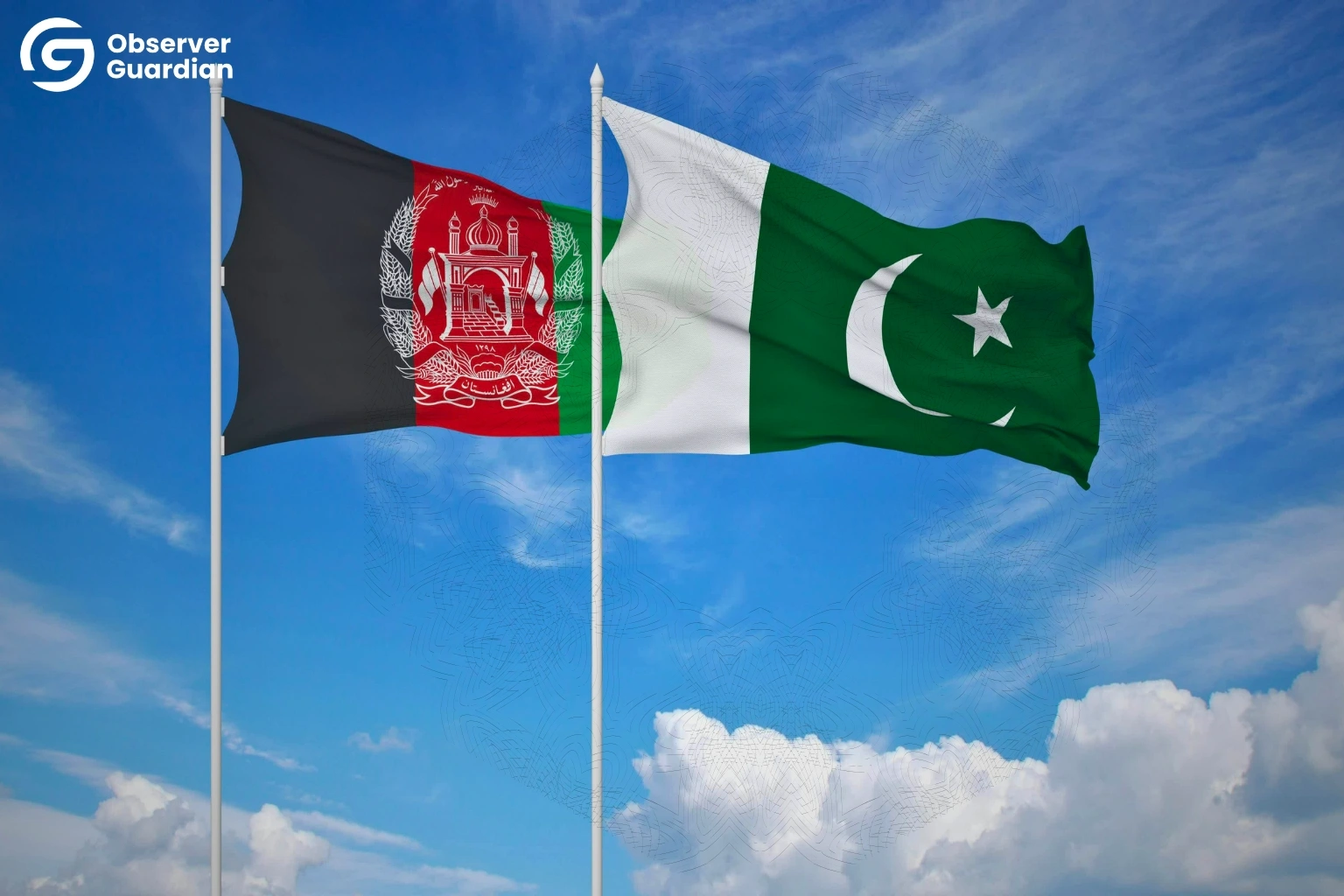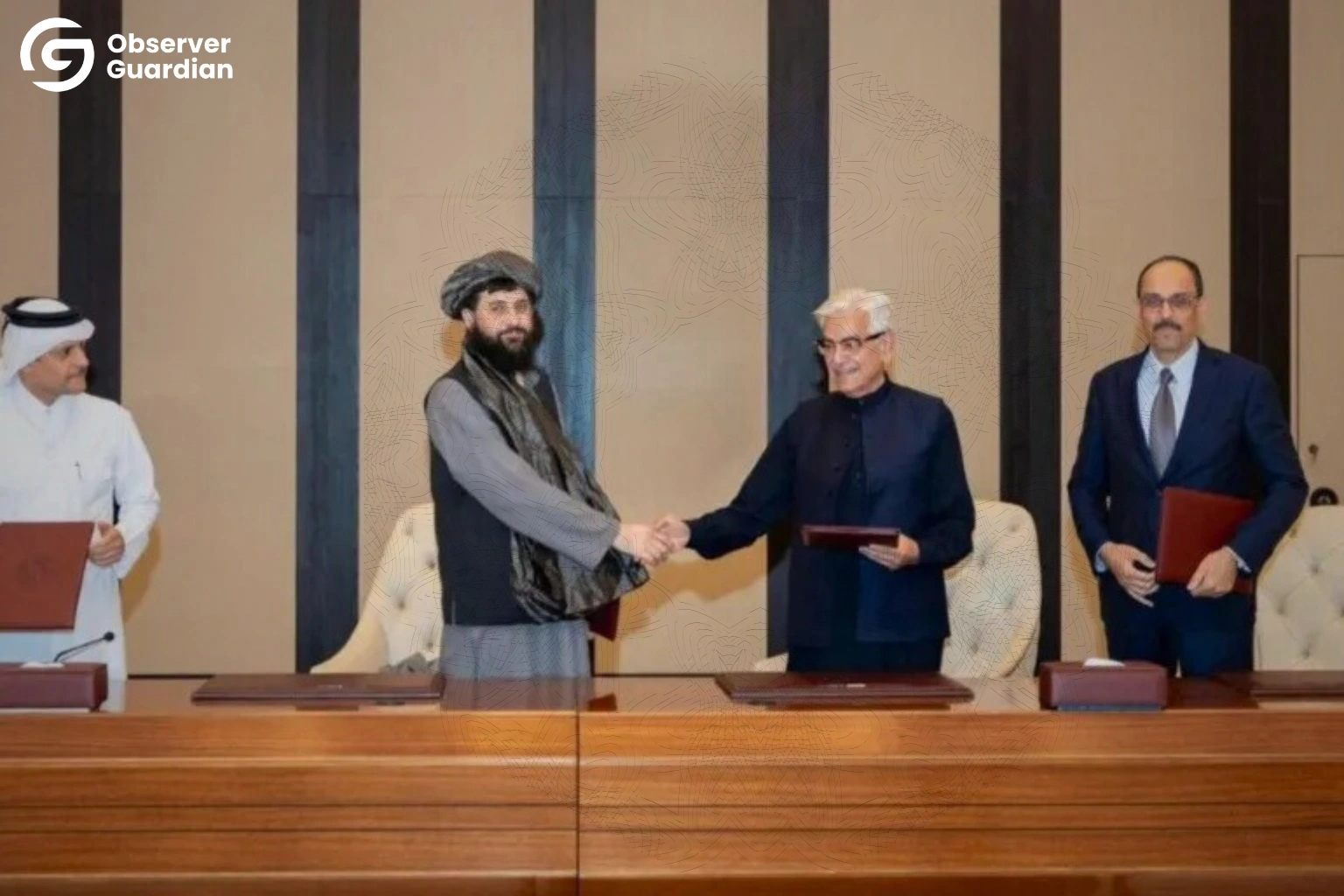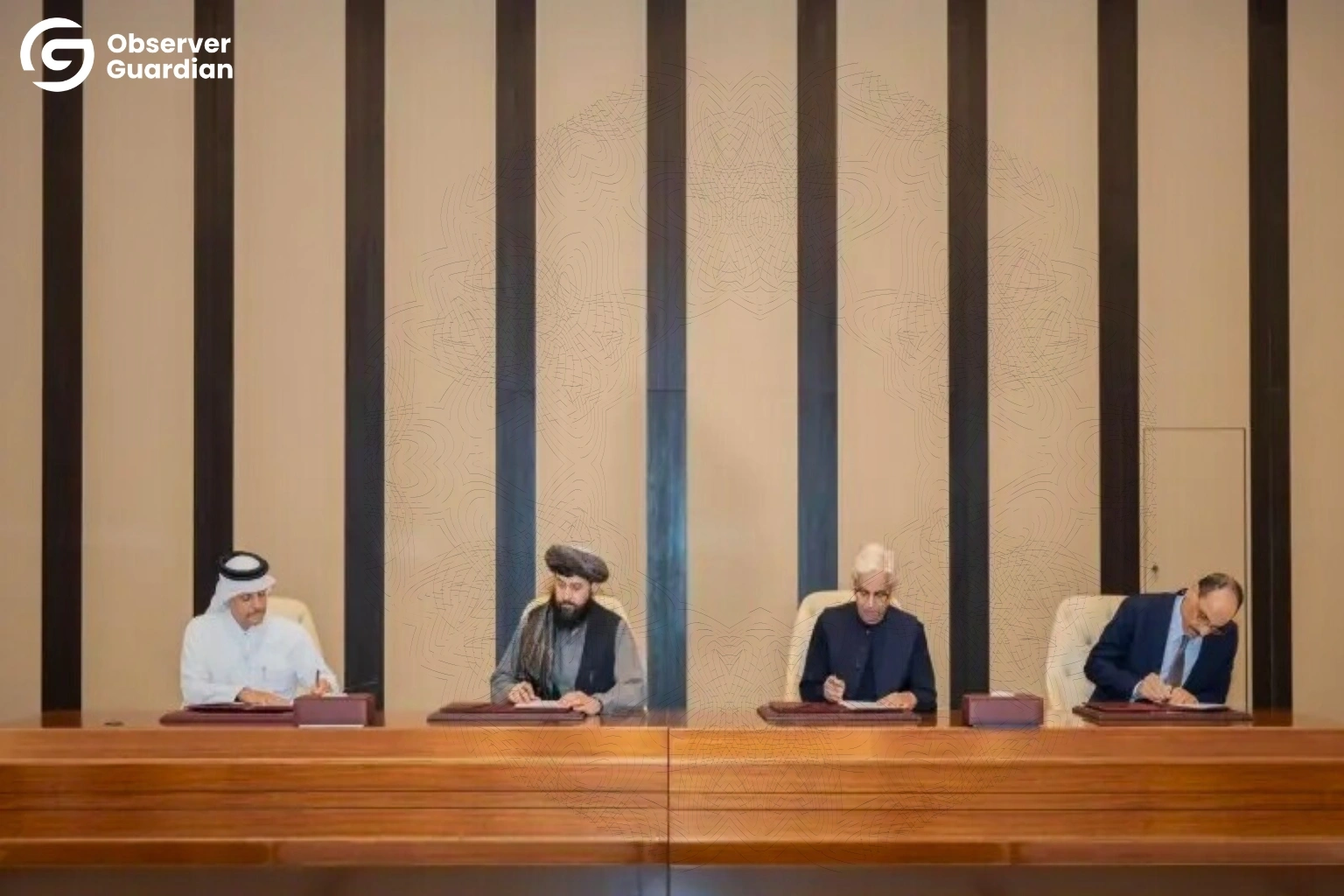The recent flare up between Pakistan and Afghanistan over the border is not any sudden change. It is the culmination of a years-long agony based on cross-border terrorism, which sprouts out of Afghan soil. The frustration of Pakistan is not without ground. It is connected to the frequent reports of militants’ groups utilizing Afghanistan as a launch ground to strike its borders, even after the persistent warnings by the Pakistani government.
One of the expectations of the Doha Agreement was that Kabul, under the Taliban rule, will not allow its territory to be employed as a source of terrorism against other states. However, decades after the organizations such as the Tehrik-e-Taliban Pakistan (TTP) and Balochistan Liberation Army (BLA), still have support on the Afghan soil despite their malicious activities. The ceasefire agreement and the assurance of peace will only work, if the Taliban government will try in true sense to make it happen.
The inability of Kabul to curb Terror Proxy
Basically, the main complaint that Pakistan has against Afghanistan is that Afghanistan hosts and shelters anti-Pakistan terrorists. It has been proved through satellite photos, intelligence reports, and even confirmed by international organizations.
Pakistani intelligence shows that more than 60 terror camps are active in the provinces of Afghanistan like Kunar, Nuristan, Nangarhar, Khost, Paktika and Paktiya.
Besides, intrusion attempts have increased 36 percent in Pakistan since June 2025, and thousands of militants have entered Khyber Pakhtunkhwa and Balochistan.
Moreover, the 36th UN Analytical Support and Sanctions Monitoring Team Report (July 2025) strengthens the position of Pakistan. It also attests the fact that, the Al-Qaida and TTP, still have training camps led by Taliban in at least six provinces. The report also refers to the existence of 6,000 TTP fighters that are being funded and supported by Taliban regime in threatening Pakistan’s national security. So, this is no longer a guess, it is a reality that has been proved internationally.

The Diplomatic Forbearance of Pakistan
Additionally, Pakistan has gone out of its way to ensure its good relations with Taliban since 2021. As most of the nations pulled out their diplomats, Pakistan alone maintained its embassy in Kabul. The Pakistan government has always urged the great powers to unfreeze the assets of Afghanistan, and to provide humanitarian assistance.
Also, the outreach of Islamabad did not end with statements. It dispatched religious figures, tribal leaders and the highest government officials to reach the Afghan leadership. For example, Mufti Taqi Usmani led an ulema delegation to Kabul in July 2022 for a call of restraint. In February 2023, the DG ISI, along with Khawaja Asif the Defence Minister, visited Kabul to hold security co-operation talks. This was followed by more delegations, one of which was led by the Interior Minister Naqvi in July 2024. Overall, the diplomatic and military leadership of Pakistan had visited Kabul 836 times, including 13 demarches and more than 200 flag meetings at the border. However, the goodwill promises by the Taliban have failed to materialize on several occasions.
A History of Generosity and Goodwill
Historically, Pakistan has paid higher prices for Afghanistan than any country in the world. It accommodated more than five million Afghan refugees for decades. It provided free healthcare and education, and its markets as well as constructed infrastructure, hospitals and schools to them. Even Pakistan, through its Early Harvest Program, was able to lower tariffs on exports of Afghans, to boost their economy.
However, Pakistan has been attacked from the territory of Afghanistan. For example, Bannu Frontier Constabulary HQ attack in which hundreds of people were killed. Since 2024, eight Afghan suicide bombers have targeted the Pakistani territory, and killed over 60 individuals.

Surprisingly, billions of dollars of weapons of NATO and the United States have ended up in the hands of the TTP and BLA. These weapons of war like, M16 rifle and thermal optics are now being turned against Pakistan’s security forces.
Hypocrisy of Taliban and its Internationalized Consequences
Nevertheless, when it comes to Pakistan punishing terrorist hideouts, Kabul is quick to invoke the concept of sovereignty. It ignores the fact that it these are the militants who are using Afghan soil to perpetrate violence across borders. Even the coordinates of terrorist training centers have been provided to the Afghan Interim Government by Pakistan. The extent of this collaboration can be highlighted by the fact that TTP chief Noor Wali Mehsud is living freely in Kabul with monthly payment of substantial funds. The Afghan social media accounts and TTP channels confirmed his presence in Kabul, when Mehsud survived a recent attack in the Afghan capital.
So, this governmental aid to terrorism is against the Doha Agreement and all the international commitments Taliban gave. This situation has worked to create a greater instability and attracting other regional players such as Qatar and Turkey in Doha negotiations.
Pakistan’s Red Lines and Path Forward
Furthermore, Pakistan has been facing terrorism over the years. It has embarked on a move to curb the presence of the Afghan nationals on its territory for addressing issues like security and economy. The anticipation of Pakistan’s successful plan is obvious in the form of returning Afghan people to their territory.
Nevertheless, Islamabad does not want confrontation. It desires a stable, peaceful, inclusive, economically connected and cooperative Afghanistan in countering terrorism.
The ball is squarely in the court of the Kabul. Thus, the Taliban must take concrete action against TTP and BLA and end its propaganda against Pakistan.
Moving forward, Taliban needs to put its words into actions to show their serious intentions of being a real brotherly and responsible neighbor. The position that Pakistan has taken since the Doha Agreement is based on patience, diplomacy and the goodwill of having peace in the region. However, it is apparent that peace is endangered by the actions of Kabul. Islamabad will keep preaching the dialogue, but it will not deter its sovereignty and safety of its citizens. So far, the message that Pakistan has been conveying is that goodwill is no sign of weakness, and restraint is no sign of surrender.
⚠ Disclaimer
The views and opinions expressed in this article are exclusively those of the author and do not reflect the official stance, policies, or perspectives of the Platform.







